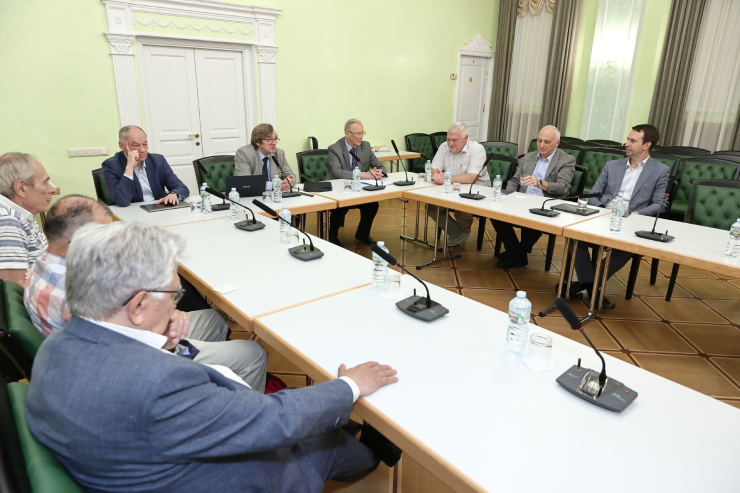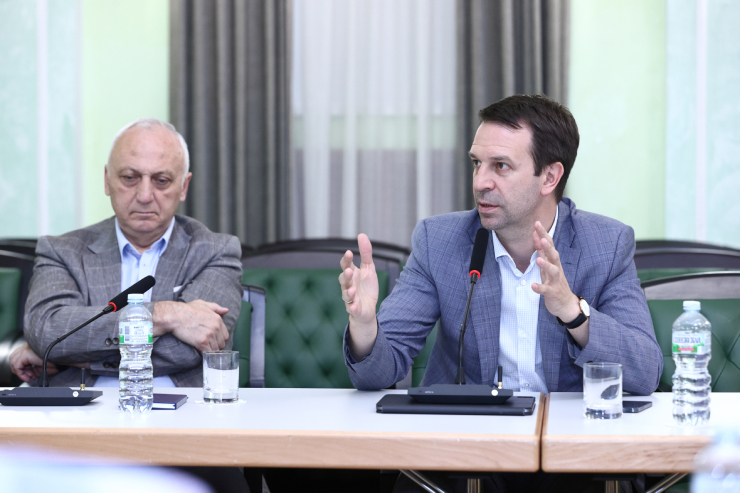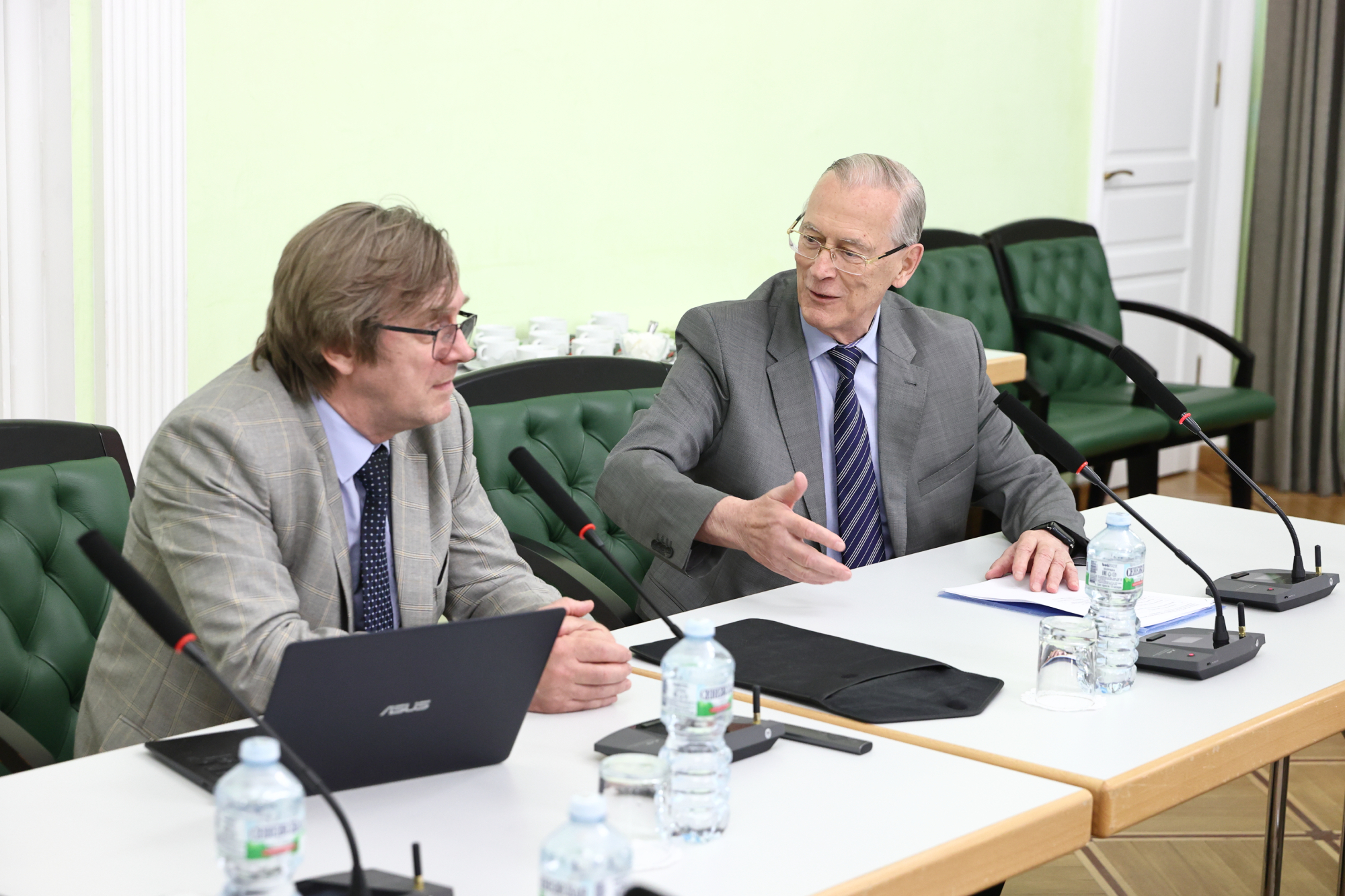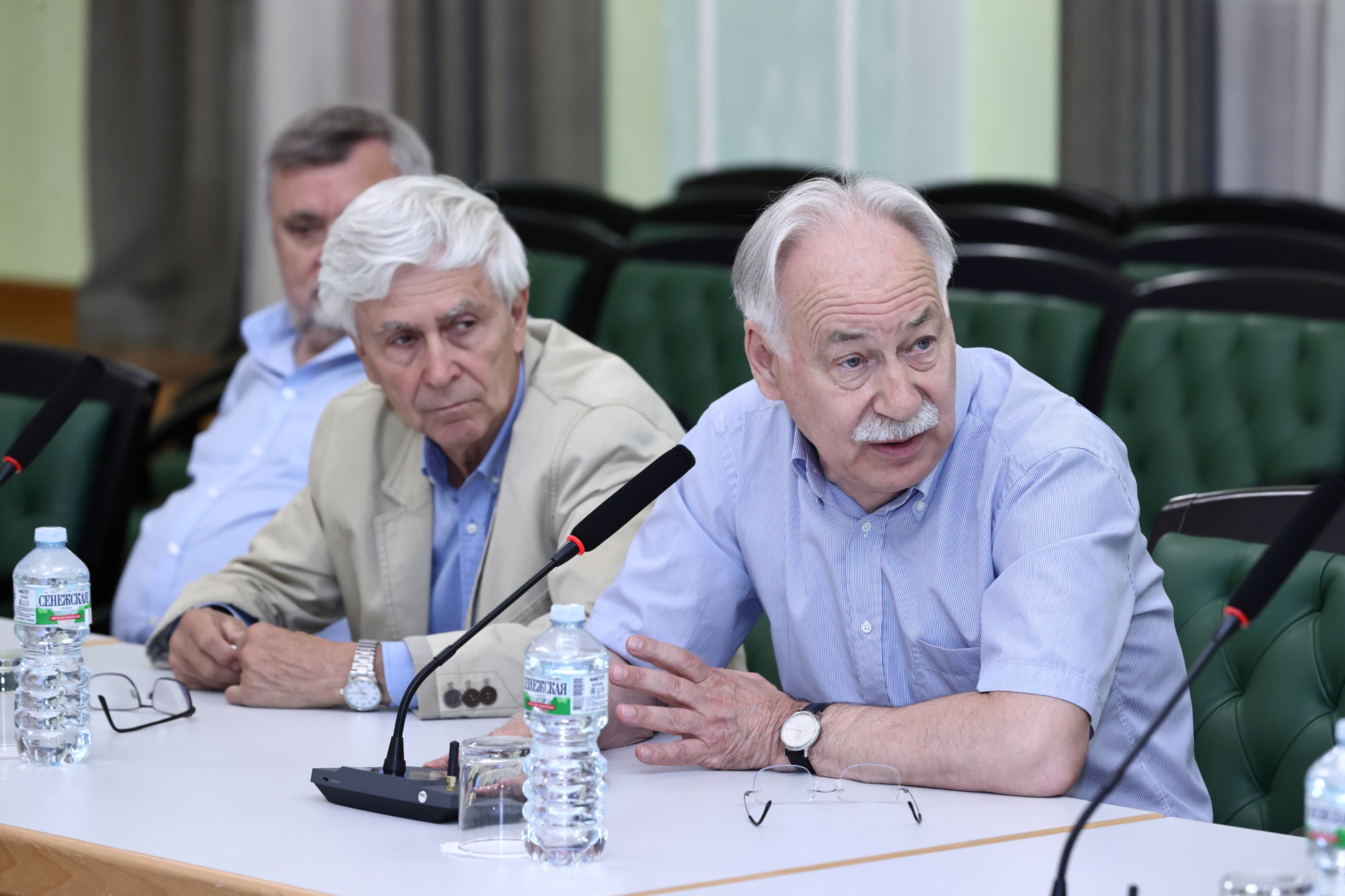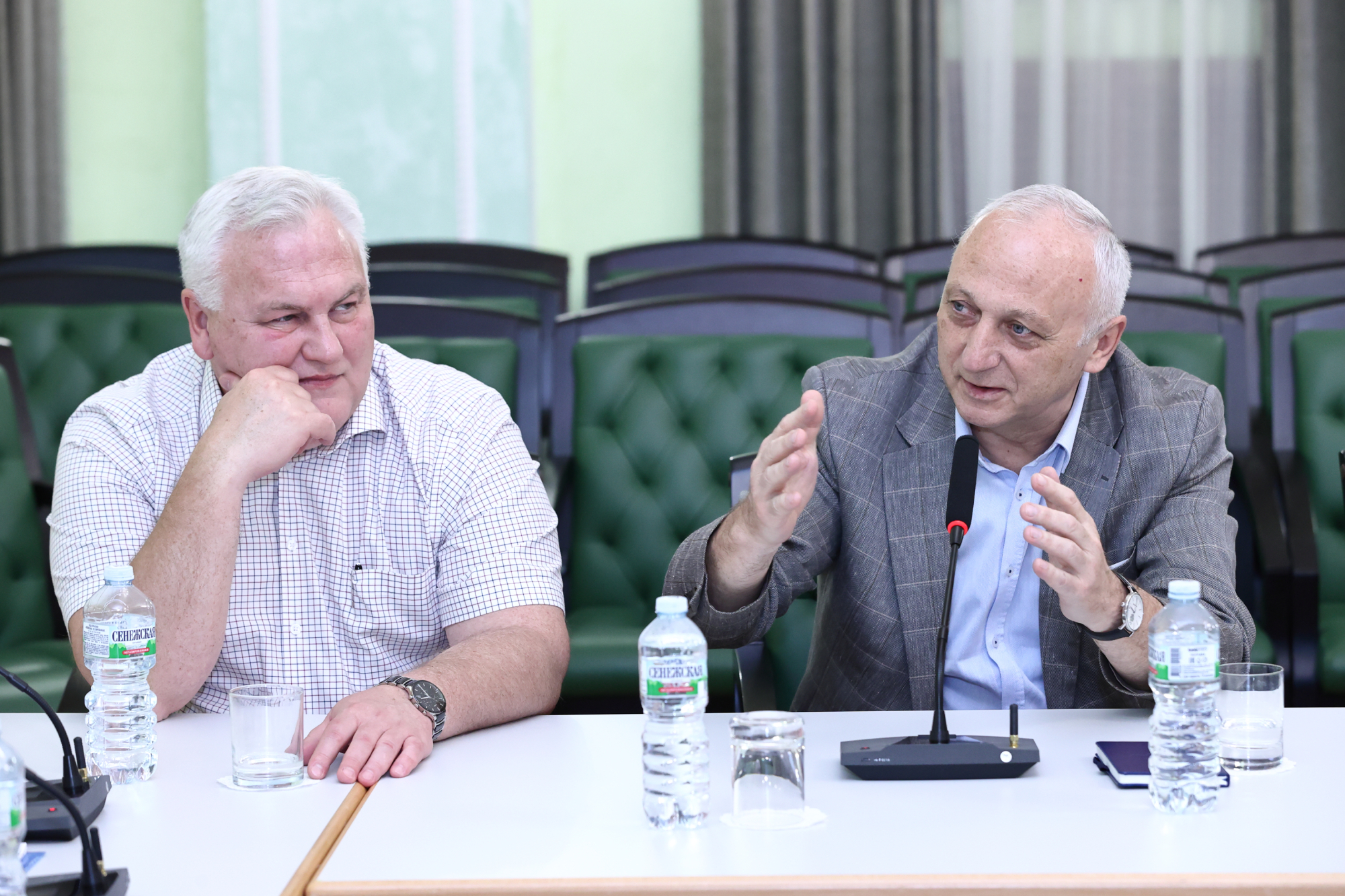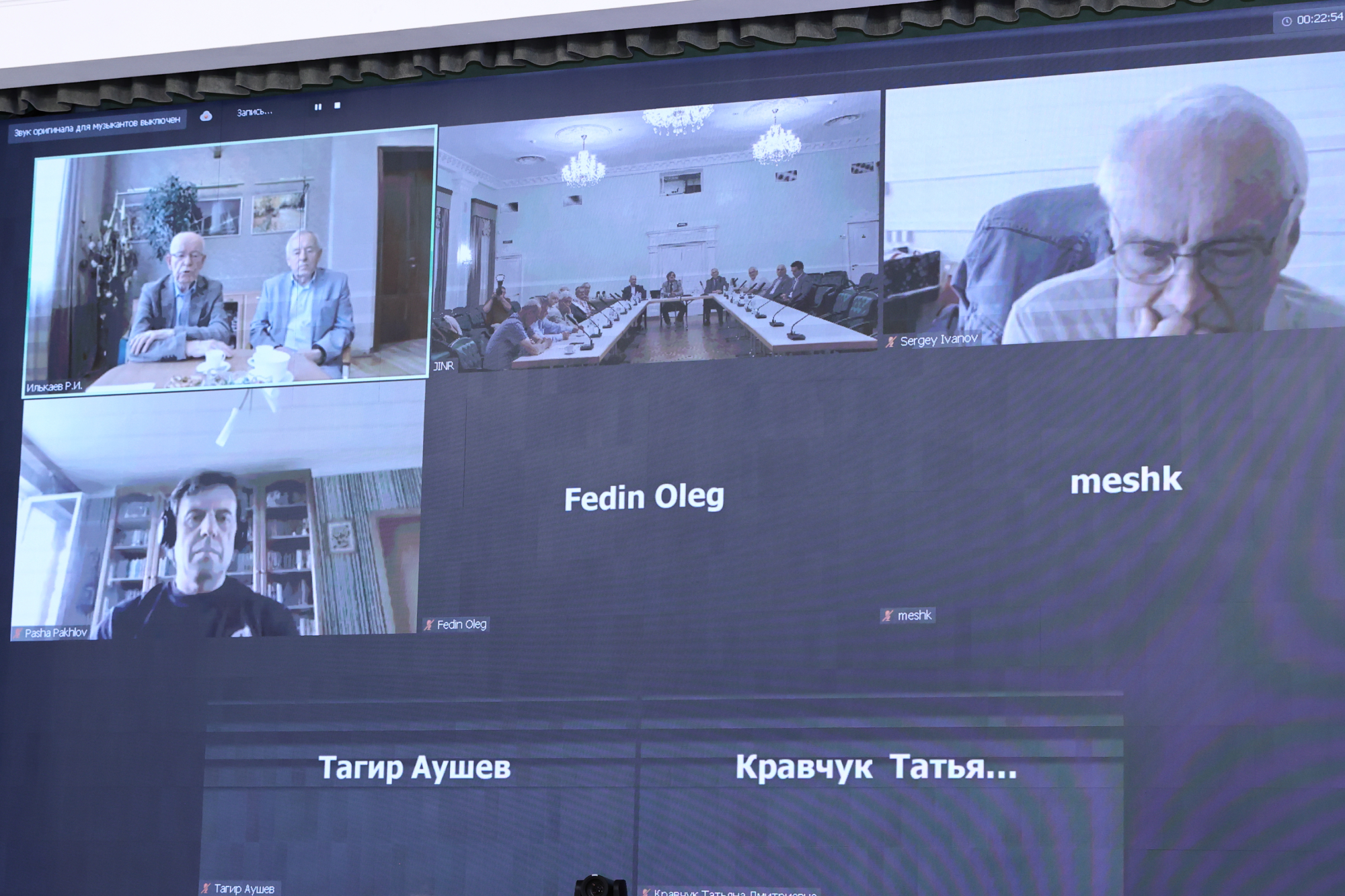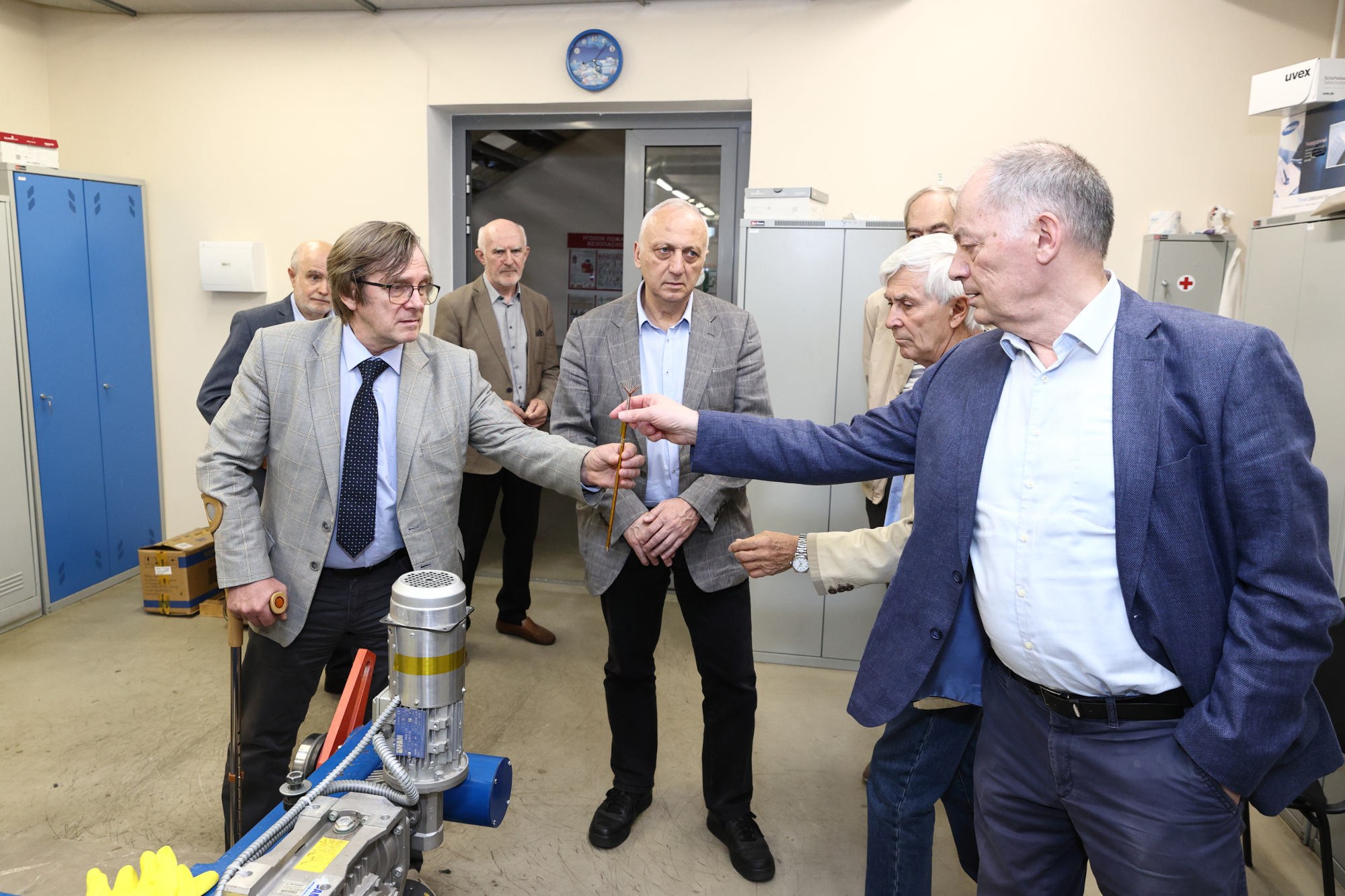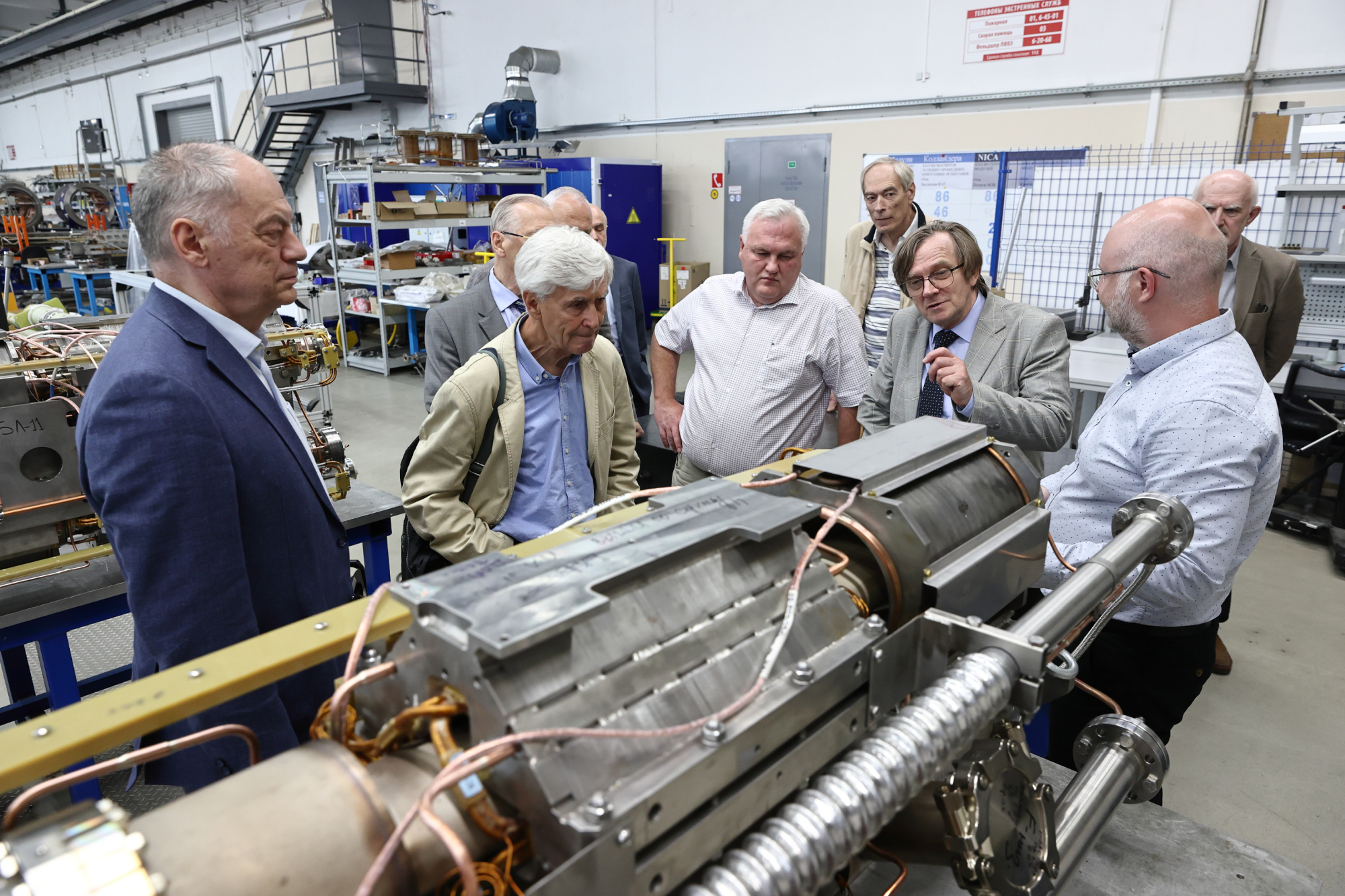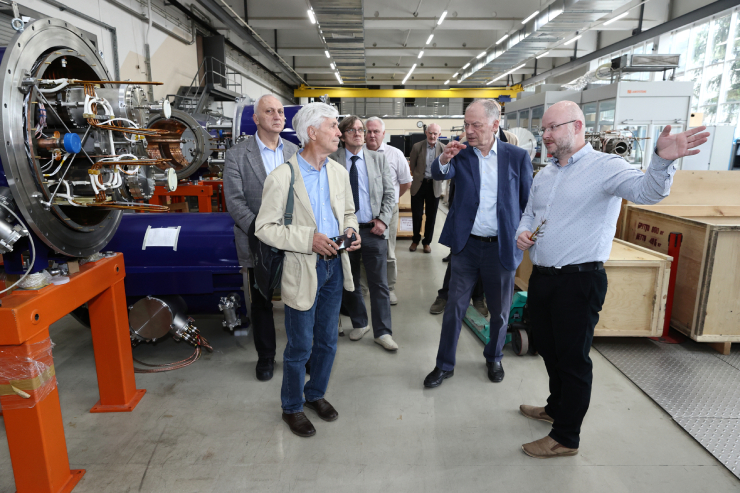First meeting of RAS Council for Particle Physics took place at JINR
News, 29 June 2023
On 22 June, the Joint Institute for Nuclear Research hosted a visiting organizational meeting of the Scientific Council of the Department of Physical Sciences of the Russian Academy of Sciences “Elementary particle physics and high energy physics” within the Nuclear Physics Section. The event became the first meeting of the Council’s members since its establishment. In addition to the issues regarding the membership and organization of the Council’s work, one of the key topics discussed was the participation in large-scale infrastructure projects in the field of particle physics and high energy physics in Russia.
The meeting was attended by prominent physicists from leading scientific organizations of Russia, namely Novosibirsk State University, the Institute for Nuclear Research RAS, G. I. Budker Institute of Nuclear Physics SB RAS, Moscow Institute of Physics and Technology, Moscow Engineering Physics Institute, Skobeltsyn Scientific and Research Institute of Nuclear Physics of Moscow State University, the All-Russian Scientific Research Institute of Experimental Physics, P.N. Lebedev Physical Institute RAS, A. A. Logunov Institute for High Energy Physics of NRC “Kurchatov Institute”. JINR employees who members of RAS also joined the meeting.
According to JINR Scientific Leader, Doctor of Physics and Mathematics, RAS Academician Victor Matveev, who is also a member of the Council, JINR was not chosen as the venue of the first organizational meeting by chance. The Institute has become an effective platform for discussing the challenges of physics. Being an international organization and having a set of unique experimental facilities, it has clearly demonstrated its consolidating role in communication with leading scientific organizations and scientists of the country.
“The main topic of the meeting was the organization of the Council’s work and its mission,” Victor Matveev said. “The Council was created based on the readiness of all its participants to start a big work immediately. That is to assist in the implementation of such large-scale projects as the NICA Collider being constructed at JINR. We have informed our colleagues that despite external difficulties we have managed to gain high working pace, so now the project is at its very active development stage. We hope that 2024 will be the year of the collider’s launch and start of work at it. Of course, all this will happen only with the help and participation of our colleagues who have expressed their wish to take an active part in the NICA implementation. Interestingly, they are ready to start working immediately in a number of fields.”
The participants of the meeting discussed prospects for the development of particle physics and high energy physics in Russia, as well as progress in the implementation of megascience projects in the country. In addition to the completion of the NICA Complex construction, the discussed subjects were the neutrino programme on Baikal, a new circular photon source SKIF in Siberia, and a number of other projects.
The meeting participants paid special attention to the issues of training highly qualified staff for work at megascience facilities. Fast pace of modern science and technology enhancement set additional challenges in solving this task. The Council’s members highlighted once again the necessity of interuniversity cooperation and importance of holding conferences on modern subjects thus to create the synergy in the scientific community. The Council took over the organization of an annual Russian conference on particle physics.
Another essential task the Scientific Council faces is the establishment of international cooperation. “This is a topical issue for all the scientific organizations, and especially for JINR since we solve our scientific problems in cooperation with numerous foreign colleagues,” Victor Matveev noted. “We should say that although some Western European countries either suspended participation or terminated their membership at JINR, it did not greatly influence the programme of scientific studies. We continue actively developing and moving forward to implement our main goals. At the same time I should highlight that there are many opportunities to attract scientists from other countries to cooperate with the Institute. These are Chile, Mexico, China and others. Cooperation with JINR’s long-standing partners Serbia and Egypt has reached a new level. We see that the community of scientists and specialists interested in participating in the studies at new large-scale facilities being created at JINR is indeed growing. We are very positive about the future.”
The working programme of the Council meeting included the visit to the Laboratory of High Energy Physics where participants had a guided tour of the factory of superconducting magnets, visited the BM@N Experimental Facility, learned about the progress in the NICA Collider construction. “Our colleagues were impressed by the level of our experimental facilities, as well as the pace at which we are completing the construction of the collider and bringing closer its launch,” Victor Matveev highlighted.
The next meeting of the Council is scheduled for September and will take place in Novosibirsk during the RuPAC-2023 Conference.
